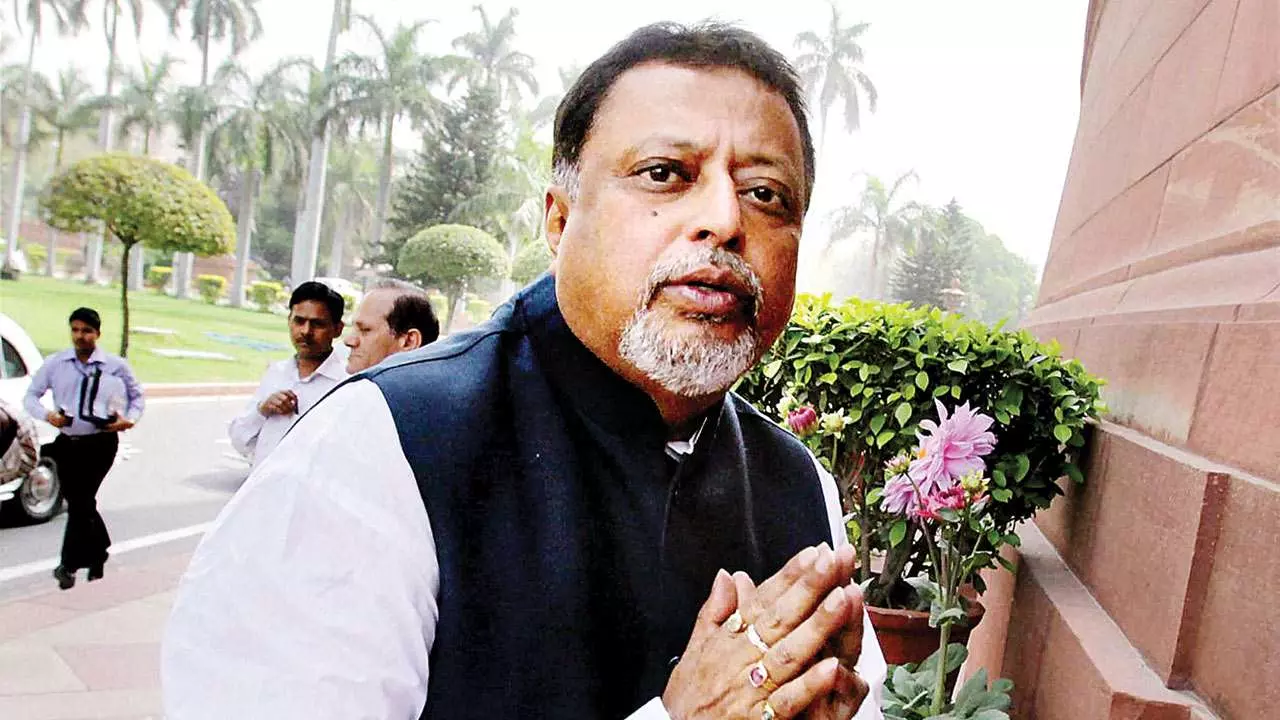
Calcutta HC disqualifies TMC leader Mukul Roy under anti-defection law
Court nullifies Speaker’s order, rules former BJP MLA defected by joining TMC in 2021; landmark judgment on anti-defection law

In a landmark judgement that could have implications beyond West Bengal politics, the Calcutta High Court on Thursday (November 13) disqualified senior Trinamool Congress (TMC) leader and former BJP MLA Mukul Roy from the state assembly under the anti-defection law.
The verdict, delivered by a division bench of Justice Debangsu Basak and Justice Mohammad Shabbar Rashidi, not only overturned the West Bengal Speaker’s decision but also reaffirmed the judiciary’s authority to intervene in matters of legislators when constitutional processes are undermined.
First instance in Bengal’s political history
This is the first instance in Bengal’s political history where an MLA’s membership has been cancelled under the anti-defection law, a development that could reshape political accountability across India’s state legislatures.
Mukul Roy had won the 2021 West Bengal assembly election from Krishnanagar North on a BJP ticket. Barely a month after the polls, on June 11, 2021, he rejoined the TMC in the presence of party national general secretary Abhishek Banerjee, even as his son Subhranshu Roy followed suit.
Also Read: Mukul Roy makes a U-turn again; says will work for BJP, was not mentally part of TMC
Despite his high-profile return to the ruling party, Roy did not resign as MLA. His actions prompted BJP leader and Leader of the Opposition Suvendu Adhikari to file a disqualification petition under the Tenth Schedule of the Constitution, the anti-defection provision meant to curb political opportunism.
Speaker Biman Banerjee, however, rejected the plea, arguing that Roy remained a BJP member as there was “no 100 per cent proof” that he had voluntarily given up his party membership. He further held that Roy’s appearance at the TMC headquarters was merely an act of “courtesy”.
Prolonged legal battle
After a prolonged legal battle spanning four years, the division bench ruled on Thursday that Mukul Roy had, in fact, violated the anti-defection law and stood disqualified from June 11, 2021, the day he joined the TMC.
The court also nullified the Speaker’s earlier order, noting that he had “repeatedly erred” even after earlier judicial directions to reconsider the case. The bench observed that further delays would only defeat the purpose of the law, as the current assembly’s term ends in 2026.
Three grounds for disqualification
In its 100-page verdict, the bench listed three key grounds for disqualification.
It pointed out that proceedings under the anti-defection law are constitutional, not criminal, and therefore, the Speaker’s insistence on “100 per cent proof”- as if in a criminal trial - was legally unsound.
Also Read: Uneasy partners Mukul Roy and BJP continue their jig for convenience
It further stated that Roy himself admitted to visiting the TMC office and never denied attending a press conference where he was publicly welcomed into the ruling party. Under legal principles, what remains unrefuted can be treated as an admission.
Multiple photos, videos, and media reports showed Roy joining the TMC in the presence of senior leaders. The court ruled that such evidence could not be ignored or dismissed as mere coincidence.
Anti-defection law
The judgment is not just about Mukul Roy. The anti-defection law, inserted through the 52nd Amendment in 1985 and later strengthened by the 91st Amendment (2003), aims to prevent legislators from switching parties for personal or political gain. Yet, in practice, it has often been undermined by partisan decisions of Speakers who tend to protect ruling party interests.
At least “six MLAs” had jumped ship to the TMC since 2021 assembly elections, violating the anti-defection law.
“The High Court’s intervention hopefully will set a precedent towards judicial correction of such bias. It may send a clear message that constitutional morality cannot be compromised by political convenience,” observed political commentator Amal Sarkar.
Also Read: TMC's Mukul Roy says he is in New Delhi after family's untraceable claim
“The ruling could strengthen the argument for establishing independent tribunals to decide disqualification cases, an idea often mooted by jurists and even endorsed by the Supreme Court in past judgements,” he added.
The verdict refers to Paragraph 2(1)(a) of the Tenth Schedule, which holds that even without a formal resignation, an MLA’s conduct can prove voluntary defection.
Scope of law expanded
By recognising behavioural evidence such as joining another party’s events or accepting its posts, the court has expanded the interpretative scope of the law, making it harder for defectors to hide behind procedural loopholes.
“For Bengal, the decision is a moral victory for the opposition and a reminder that political accountability must rest on the Constitution, not party loyalties. But nationally, it carries even greater weight. Over the past decade, state after state, from Goa to Manipur, has witnessed rampant defections that toppled governments and mocked the spirit of the law,” observed another political commentator Debashis Chakrabarti.
Also Read: I want to be with BJP, would like to meet Amit Shah: Mukul Roy
Meanwhile, reacting cautiously, West Bengal Speaker Banerjee said he had disallowed the disqualification plea “after careful consideration” and would study the court’s verdict before deciding on his next steps.
“The court’s order will be examined in detail before any further decision is taken,” he told the media, reminding that under assembly rules, the Speaker’s order normally stands as final unless overturned by a competent court.

